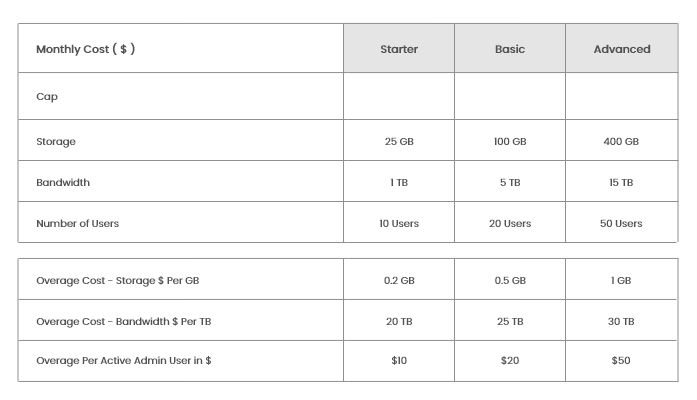



The Three Aspects of Organic Keyword Research
Organic keyword research is the process of identifying the best keywords...
It can be difficult as a marketer to ensure that your web pages rank on Google. It can be difficult to know where to begin at times. You're working on web pages, but you need to figure out how to make them more visible to the target audience. Everything begins with keyword research.
We will look at the three pillars of organic keyword research in this article: search intent, keyword difficulty, and SERP analysis. Let's get this party started!
What precisely is Organic Keyword Research?
Organic keyword research is the process of identifying the best keywords for your organic online search strategy. Essentially, It's all about finding the best possible keywords to use when optimizing a website's landing page. The term "organic" is used because the research is intended to help the site rank higher in Google's organic (non-paid) section.
Organic keyword research is also known as "SEO keyword research" or simply "keyword research." Keyword research for Google's ad section, on the other hand, is frequently referred to as paid keyword research or PPC (pay-per-click) keyword research. Overall, organic research should be an important part of your SEO (Search Engine Optimization) strategy.
The Three Foundations of Effective Organic Keyword Research
The categories listed below are important in the keyword research process. These three pillars should serve as a guide for your keyword research in order to select the best keywords. They should assist in ensuring that your SEO strategy and SEO goals are properly aligned.
1. Intention of Search
Understanding search intent begins with understanding the mindset of the person conducting the search. When someone searches for something online, they usually start with a keyword search. There are four types of keyword search intent: informational, navigational, transactional, and commercial.
- Informational: The desire to learn more about a particular topic, product, or service (For example, how to select the best lawyer)
- Navigational: The desire to locate a specific web page (Example: Kansas DUI law)
- Transactional: The desire to make a purchasing decision and then purchase a product or service. (For example, hire a lawyer.)
- Commercial: The desire to learn more about a product or service before purchasing it (For example, family lawyer vs divorce attorney)
When conducting keyword research, it is critical to understand the type of search intent associated with the keyword. Following that, you should match your target keywords to the associated web page. Consider optimizing a blog article if you want to rank for an informational keyword. Optimize your product or service page if you want to rank for a transactional keyword.
Overall, understanding the four types of search intent keywords can help you better understand how people search. It can also assist you in researching and selecting different keywords for your campaign strategy. Your campaign's keyword types will also be determined by your budget, relevance, and online authority.
Understanding the Market
Furthermore, when considering search intent, it is critical to understand the industry. Industry knowledge entails focusing on the "niche," or what distinguishes them from their competitors.
The majority of SEO keyword strategies are simple. When campaigns aren't as straightforward, conducting industry research can help you understand what the company does and what the campaign requires to succeed. Recognizing each campaign's target market is a critical concept that can make or break a campaign experience.
It will help shape your keyword research strategy once you've researched the industry and discovered the search intent for potential keywords.
2. Difficulty Keyword
In the business world, competition is almost always a factor that influences your strategy. You most likely have online competition in addition to in-person (direct) competitors. Search engine competition looks different, and it's often more difficult to compete against.
When it comes to keywords and SEO strategy, you will most likely be competing against websites other than your direct competitors. This includes business directories (Yelp, YellowPages, TripAdvisor) as well as large e-commerce websites (Amazon, Target, Walmart). As a result, ranking at the top of search engines becomes more difficult. This is where keyword difficulty enters the picture.
The keyword difficulty metric indicates how much effort it would take for your website to rank for a specific keyword. It is frequently used by automated SEO tools such as Ahrefs and SEMRush. As an example, the keyword "best SEO company" has a "74%" keyword difficulty and a "commercial" search intent. With "informational" search intent, a term like "how to use Google Search Console for Keyword Research" has a "43%" keyword difficulty.
Checking keyword difficulty will help you define what types of keywords will fit into your strategy. The difficulty of your target keyword should be determined by your industry, domain, and budget. Choosing keywords with low keyword difficulty increases the likelihood of your web pages ranking higher in search engines.
The Importance of Search Volume
Keyword tools will frequently provide search volume in addition to search intent and keyword difficulty. This is an estimate of how many times a particular keyword is searched on Google each month. High-volume keywords, or those that are frequently searched on Google, aren't always the best options.
Local businesses should probably target zero search volume keywords as part of their strategy. Consider search volume when ranking for national keywords for larger corporations. Typically, higher search volume combined with lower keyword difficulty yields the best results.
3. SERP Evaluation
SERP (search engine result page) analysis is the process of inspecting Google result pages to learn more about the websites that are ranking high. It is useful in organic keyword research because it provides information about the competition and search intent.
Perform a quick SERP analysis after you've explored and selected a few potential target keywords. Simply enter the keyword into Google search and examine the results. Here are a few things to keep in mind as you inspect:
- Websites for ranking: Examine the top ten results to determine the type of company. Is it a directory of businesses? Is it a large e-commerce platform? Is it a smaller, more local competition? Generally, it is easier to rank on SERPs in areas with similar-sized businesses that aren't overcrowded with large competitors.
- Local or national outcomes: Do you see a local map pack when you perform the search? A local map pack is made up of business profiles that appear above organic search results. Or do you see mostly national results (no local map pack) aimed at a broad, national audience?
- Competitor content ranking: Dive deeper and assess the actual content on the ranking websites. Typically, ranking a website indicates that Google found it relevant, trustworthy, and useful. Analyze the content that will help you shape your content ideas and strategy. It is critical to never duplicate any content.
The answers to these questions will assist you in developing your SEO strategy. It will assist you in identifying the best keywords that will allow your website to rank at the top of search results.
The Value of Relevant Content
With relevant content, SEO campaigns can control their destiny. You may have heard the phrase "content is king" in the digital marketing world. An important addition to this phrase in this context is "relevant content is king."
We've all seen websites with stunning web designs. But sometimes it's difficult to find the information you're looking for, so you move on to another website. Searchers frequently fail to find information because there is little to no relevant content. If there is content, it is often too broad to answer any of the searcher's questions, resulting in a missed opportunity.
Searchers come to Google with a question in mind, and they look for answers in the SERPs. Your site's relevant content can answer their questions, allowing you to rank higher. In addition, content is the most natural way for businesses to rank and succeed.
Remember that Google wants to provide its users with the best results possible. You'll have a well-oiled machine with the right keywords.
Organic keyword research's three pillars (search intent, keyword difficulty, and SERP analysis) can all work together to kickstart your SEO campaign. Use these pillars to conduct effective keyword research, which can lead to increased online visibility and leads for your company.
Hocalwire makes it easier for writers by enabling Mobile First SEO Optimization as a built-in function. Hocalwire CMS includes fantastic automation features that help traffic from various sources focus on your website. You may drastically increase your traffic with the aid of Google Analytics and potential choices with Hocalwire. To learn more about Hocalwire CMS's limitless potential, Schedule a Demo.

